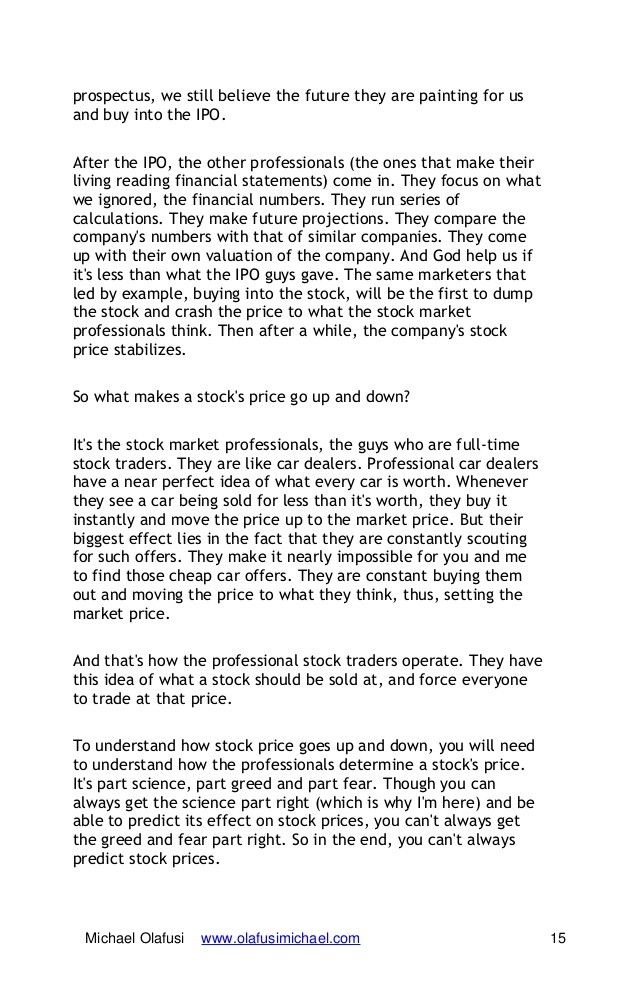Investment Guide Financial Statements
Post on: 5 Апрель, 2015 No Comment

Glossary
Studying a companys financial statements provides an investor with vital information about a companys performance and more importantly pointers to its prospects.
Analysing that information using financial ratios, such as the oft-quoted price-earnings ratio, allows comparisons to be made with the past, with other companies in the industry, and with the market as a whole.
What are Financial Statements?
Financial statements provide specific information about a companys financial position and performance. They are found in the annual report and consist of a:
- Statement of financial performance
- Statement of financial position
- Statement of cash flows
Each year, public companies must provide shareholders with an annual report a document that summarises the results of operations and the companys financial status in the past year.
Reading the annual report which must be independently audited is a chance for investors to examine the companys financial strength and performance over the past year and to consider what opportunities there are for future growth.
In Australia, the financial year officially runs from July 1 to June 30, but companies may register another 12-month period as their reporting period.
Companies must lodge an annual report with ASIC within four months of the end of their financial year.
That report will be formally presented to shareholders at the annual general meeting (AGM), which must be held within five months of the end of the financial year.
Reporting Requirements
Six main bodies formulate and/or or enforce accounting regulations in Australia:
- The Australian Securities and Investments Commission (ASIC)
- The Australian Accounting Standards Board (AASB)
- The Financial Reporting Council (FRC)
- The Australian Stock Exchange (ASX)
- The Urgent Issues Group (UIG)
- The Australian Accounting Research Foundation (AARF)
Australian companies have four main financial reporting requirements to consider.
First, they must comply with accounting standards. These standards have the aim of ensuring that companies produce financial statements that can be readily compared.
Second, they must provide true and fair financial statements. This is commonly interpreted to mean that the financial statements comply with accounting standards.
The company must also provide a directors declaration a signed opinion by company directors attesting that the financial report is true and fair, complies with accounting standards and that the company can meet its debts.
And the annual report must include a report from the company directors providing a general outline of the business for the year and making certain statutory disclosures
Companies will more often than not report their financial results from the perspective of the consolidated entity, not just that of the parent company.
The objective of consolidated financial reports is to provide a complete picture of the financial performance, position and cash flows of a group of entities that are under common control.
Accounting standards
On January 1, 2005, Australia completed the phasing out of Australian accounting standards and adopted international financial reporting standards (IFRS).
The new standards resulted in changes in the valuation and recording of items in companies financial statements, and in some cases companies had to write off assets from their balance sheets entirely (or more rapidly) under the new rules.
As part of the transition, annual reports issued since the change have included a section detailing the impact of the move to IFRS.
On the plus side, IFRS is expected to improve investors ability to compare companies financial statements, they are expected to reduce reporting costs for companies especially those with international operations and a spin-off is that international capital flow is likely to improve.
Quiz 1
Question 1: The Corporations Law requires that financial statements are true and fair. What does this mean?














